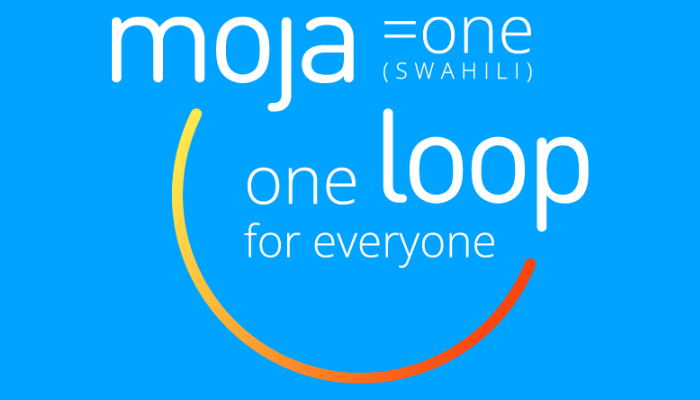This training program is designed to accelerate your understanding of Mojaloop and encourage informed advocacy. Our goal is to advance Mojaloop’s adoption and use it to drive financial inclusion.
If you are interested in learning more about Mojaloop and build expertise to help contribute to this open-source platform, then you are in the right place.
Value of Mojaloop Training Program
Implementers can freely use the core code, join the community, and build inclusive, real-time payment systems to help support the Mojaloop Foundation’s mission of providing universal financial inclusion to all. However, understanding these transformations can be difficult, and implementing them can be challenging. The purpose of the Mojaloop Training Program is to accelerate learning for operators and participants to scale the adoption and use of Mojaloop securely.

Training Program’s Intended Audience
This training program is designed for a broad audience, as there is a course for everyone, even if you are trying to understand Mojaloop. However, we have developed this program with two main groups in mind:
Hub Operators: i.e., organizations that run payment systems and the technology providers that support them. We have courses to help you accelerate your team’s ability to securely deploy, configure, and operate the Mojaloop platform for the market.
Financial Institutions: i.e., banks, credit unions, mobile money operators, microfinance organizations, their technology partners, and system integrators. We have courses that cover the best practices for onboarding, integrating, and connecting securely to Mojaloop.
Mojaloop Training Program Overview Video
This overview session provides a detailed description of the new Mojaloop Training Program and addresses any questions participants may have had regarding the course.
Mojaloop Training Program Course Outline
Explore the Course Outline below to understand the depth and relevance of the courses currently available and those to come.

Fundamental Mojaloop Courses – Now Available!
Click on a course below to see a brief description and to get started.
- The first part covers the basics, starting with defining real-time payments, common terminology, and associated benefits. You will learn about the Level One Project, a framework for discussing real-time payments and developing systems that are inclusive of all people.
- The second part of the MOJA 101 course will help the groups involved in building a Level One aligned system understand their roles and responsibilities and the roles of the others involved.
MOJA 102 expands on the base knowledge learned in MOJA 101 and covers the fundamental aspects of the DFSP interoperability API, exploring some history and examples. This course will take a high-level overview of common functionality and cover the use cases, resources used in the API, error handling, swagger, and general transaction patterns.
MOJA 103 is the Mojaloop Technical Overview course. This course will provide you with a deeper understanding of how Mojaloop works from a technical perspective, focusing on the open-source side.
After completing this course, you should be able to:
- Describe the basic functionalities for each phase of the Mojaloop transfer process
- Explain the high-level architecture of the Mojaloop transfer process
- Describe how the microservice component architecture aligns with the three stages of the Mojaloop transfer process
- Describe the different technologies used in the Mojaloop architecture
Having adequate security controls is an essential component of any trust-based system, especially social payment services and payment service providers, in order to assure the users within the ecosystem of confidentiality, integrity and security of their payment processing. MOJA 104 offers some perspective on how Mojaloop solves these issues by investigating how the Mojaloop hub works at a high level, some of the risks associated with payment gateways, and, finally, how Mojaloop secures its payment transactions and why this is important to its users.
This non-technical course will provide you with a detailed look at Mojaloop schemes. You will explore the anatomy and structure of a scheme in detail, including ownership, the participation model and the development of scheme rules. You will also learn more about the business case for setting up and operating a scheme and how to go about doing this.
** Although anyone interested can review the SCHEME 101 course, the course has been designed primarily for those involved in building a scheme or advisors and advocates who are championing the implementation of a Mojaloop payment scheme in their region. It is also assumed that learners of SCHEME 101 have completed MOJA 101, the Mojaloop Training Program’s introductory course.
In this course, you will explore why a Digital Financial Service Provider (DFSP) should use Mojaloop, how Mojaloop conducts transactions, the different product, operational and technical considerations, and use cases for which the system can be leveraged.
**Although anyone interested can take the DFSP 101 course, it was designed with business and project owners in mind, as well as the assumption that learners of DFSP 101 have completed MOJA 101, the Mojaloop Training Program’s introductory courses.
This course explores the Mojaloop security architecture, specifically designed for digital financial services provider (DFSP) integration architects and operations teams. Participants will gain a thorough understanding of the security measures and controls implemented by participating DFSPs within a Mojaloop hub scheme.
This course builds on DFSP 101 to provide practical steps for performing Technical Operations (TechOps) support functions. It highlights the support processes and the TechOps business needs around which they are built and explored, followed by an introduction to the Mojaloop tools that enable the efficiency and automation of these processes. The course is aimed towards those working within DFSPs or those advocating for DFSPs to join a Mojaloop system (such as strategy-related roles, business operations and product owners).
**Although anyone interested can review the DFSP 209 course, the course has been designed with business and project owners and technical operational experts in mind.). It is also assumed that learners of DFSP 209 have completed DFSP 101.
In this semi-technical course, you will explore the functional architecture of Mojaloop and gain a deeper understanding of the interplay between the scheme, the hub and the platform. You will consider operational costs and examine how to scale a hub according to customer or DFSP requirements, plus learn how to set up and operate a hub, including the key decisions to be made throughout the process and how the hub can be created and run in a sustainable, future-proof manner.
**Although anyone interested can review the HUB 101 course, the course has been designed with hub operators in mind. It is also assumed that learners of HUB 101 have completed MOJA 101, the Mojaloop Training Program’s introductory course.
This course is designed for professionals dedicated to securing the payment hub infrastructure developed by Mojaloop. This course provides a comprehensive understanding of the core secure design principles applicable beyond the Mojaloop switch and offers an overview of the Mojaloop hub security architecture.
This semi-technical course provides an overview of the Mojaloop tools, processes, and operations for a Hub operator or anyone interested in building and running an operational Mojaloop Hub. HUB 209 begins with an overview of the Hub operator and support operations. Next, the various management processes for incidents, problems, change, release, and configurations are discussed. A detailed look at operational tooling and monitoring is then covered. Finally, this course concludes with a brief look at API gateways as an example of the tools used to manage the technical operations (TechOps).
**Please review the pre-requisite course, HUB 101, before enrolling in HUB 209.
This course will provide you with a focused review of the basic features of the Mojaloop Testing Toolkit (TTK) and its usages. It explores the purpose of the Mojaloop TTK, its installation and set-up, and the basic features of the toolkit’s user interface. Finally, you will become familiar with the capabilities and functionalities of the toolkit in a variety of scenarios, including both basic and advanced use cases.
**Although anyone interested can review the MTP TTK 101 course, the course has been designed primarily for those involved in Quality Assurance (QA) at DFSPs participating in a Mojaloop Hub.

